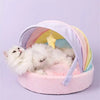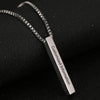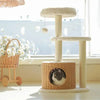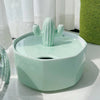Is Eucalyptus Safe for Cats?
Eucalyptus is a widely used plant, known for its soothing aroma and medicinal properties in humans. It is commonly found in essential oils, topical treatments, skincare products, and home fragrances. While it offers therapeutic benefits to humans, its effect on pets, especially cats, raises important safety concerns. Given the sensitivity of feline biology, cat owners often seek clarity on the risks associated with eucalyptus exposure. This article delves into the question: is eucalyptus safe for cats?
Understanding Feline Sensitivity to Essential Oils
Cats have a unique metabolic system compared to many other mammals. Their livers lack specific enzymes—particularly glucuronyl transferase—that are crucial for metabolizing many substances, including essential oils. As a result, compounds that may be harmless to humans or dogs can become toxic to felines. The complex mixture of phenols and terpenes in eucalyptus oil is one such example. These substances can accumulate in a cat's system and lead to serious health issues if ingested, inhaled, or absorbed through the skin.
Exposure to essential oils by diffusion, spills, or accidental ingestion can lead to a variety of symptoms in cats. These include drooling, vomiting, diarrhea, muscle tremors, ataxia (loss of balance), liver damage, or even respiratory complications. Therefore, simply diffusing eucalyptus oil in a home shared with cats may already pose a moderate to serious risk depending on the oil’s concentration and the room’s ventilation.
The Toxicity of Eucalyptus for Cats
According to the ASPCA (American Society for the Prevention of Cruelty to Animals), eucalyptus is listed as toxic to cats. The primary toxic elements in eucalyptus are eucalyptol (cineole) and other volatile compounds. Once absorbed by the cat's mucous membranes, these chemicals can rapidly affect the central nervous system and liver function. Even dried eucalyptus leaves, if chewed on or ingested, can cause gastrointestinal upset and other complications.
Scientific literature supports this categorization. Clinical data from veterinary toxicology reports indicate that eucalyptus exposure ranks among the top causes of essential oil poisoning in cats. While the exact level of toxicity may depend on the quantity and manner of exposure, even minimal contact can trigger adverse reactions due to the cat’s weak ability to metabolize volatile compounds.
Forms of Eucalyptus Exposure in Domestic Environments
Eucalyptus is commonly found in multiple household products such as aromatherapy diffusers, candles, balms, and even certain cleaning solutions. Cats may be exposed by indirect inhalation from diffused oils or direct contact with contaminated surfaces. In some cases, well-meaning owners inadvertently apply products containing eucalyptus to their pets, believing it may relieve itchiness or repel insects. Unfortunately, this results in some of the most extreme toxic reactions.
Another potential route of exposure is through potpourri or dried plant decorations, where cats may nibble on eucalyptus leaves out of curiosity. Cats' grooming behavior also makes secondary exposure especially problematic—it is likely that if their fur is contaminated, they may ingest harmful substances while cleaning themselves.
What to Do If Your Cat Is Exposed to Eucalyptus
If a cat owner suspects eucalyptus exposure, immediate veterinary care is essential. Symptoms of toxicity can appear rapidly, and delaying treatment reduces the likelihood of full recovery. Typical treatments may include decontamination (such as bathing the cat to remove oil residues), activated charcoal administration, intravenous fluids, and supportive care depending on symptom severity.
Owners should also bring a sample of the eucalyptus product involved so the vet can accurately assess the exposure type and concentration. In mild cases, recovery is possible with prompt care. However, repeated or high-dose exposure may lead to lasting organ damage or even fatality. Always err on the side of caution when it comes to eucalyptus and cats.
Safe Alternatives for Cat-Friendly Homes
Rather than using eucalyptus-based products, consider safe alternatives that are non-toxic to cats. Options include essential oils like lavender (in very diluted and carefully monitored amounts), chamomile, or valerian root—though you should always consult a vet before using any aromatic or medicinal substances around pets. Air purifiers, natural citrus peels, and herbal sachets with cat-safe ingredients can also freshen the home effectively without posing a health risk.
Creating a cat-safe environment should always be a priority. When introducing new fragrances or cleaning products into your home, research their potential impact on feline health. The absence of immediate symptoms does not mean a substance isn’t harmful over time. Always check labels and look for products explicitly labeled as safe for cats.
Conclusion: Keep Cats Away from Eucalyptus
In summary, the answer to the question “is eucalyptus safe for cats” is a definitive no. From essential oils to dried arrangements, all forms of eucalyptus pose a toxic threat to feline health. Cats' unique metabolic limitations make even trace amounts of eucalyptus potentially dangerous. Responsible pet ownership involves understanding these risks and taking preventive measures. By keeping eucalyptus and similar essential oils out of reach, cat owners can minimize the danger and ensure a safer living environment for their feline companions.
Though eucalyptus may have benefits for humans, it should never be introduced into a household where cats reside. Awareness and preventive action can save lives—and companions.


































